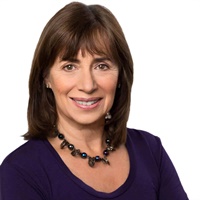CC16 Workshop 08 - Lies and Deception: The Deep Pit Couples Fall Into When Differentiation Fails - Ellyn Bader, PhD
- Average Rating:
- Not yet rated
- Topic Areas:
- Workshops | Deception | Differentiation | Couples Therapy
- Categories:
- Couples Conference | Couples Conference 2016 | Pioneers in Couples and Family Therapy
- Faculty:
- Ellyn Bader, PhD
- Duration:
- 02:00:14
- Format:
- Audio Only
- Original Program Date:
- May 15, 2016
- License:
- Never Expires.
Description
Description: Everybody lies. Some lies are loving and harmless. But, others are enormously destructive. Couples’ patterns of deception often begin innocently but end in couples destroying the love they once had. Self- deception, conflict avoidance and felony lies all undermine commitment and connection. Learn to identify and disrupt deception, confront evasiveness and hypocrisy and facilitate differentiation.
Educational Objectives:
- Delineate 4 main types of lies.
- Describe 6 types of confrontation that help disrupt patterns of deception and facilitate differentiation.
- Reveal the complex pattern created between a Felony Liar and a Lie Invitee.
*Sessions may be edited for content and to preserve confidentiality*
Credits
Handouts
| Ericksonian Learning Snapshot (247.3 KB) | 2 Pages | Available after Purchase |
Faculty

Ellyn Bader, PhD Related Seminars and Products
Ellyn Bader, PhD, is a founder and director of The Couples Institute in Menlo Park, California. As a clinical psychologist, workshop leader, author, and speaker, she is dedicated to helping couples create extraordinary relationships. Over the past 30 years she has trained therapists in couples therapy throughout the United States as well as Europe, Asia, South America, and Australia. She served as a Clinical Faculty in Stanford University School of Medicine for 8 years.


